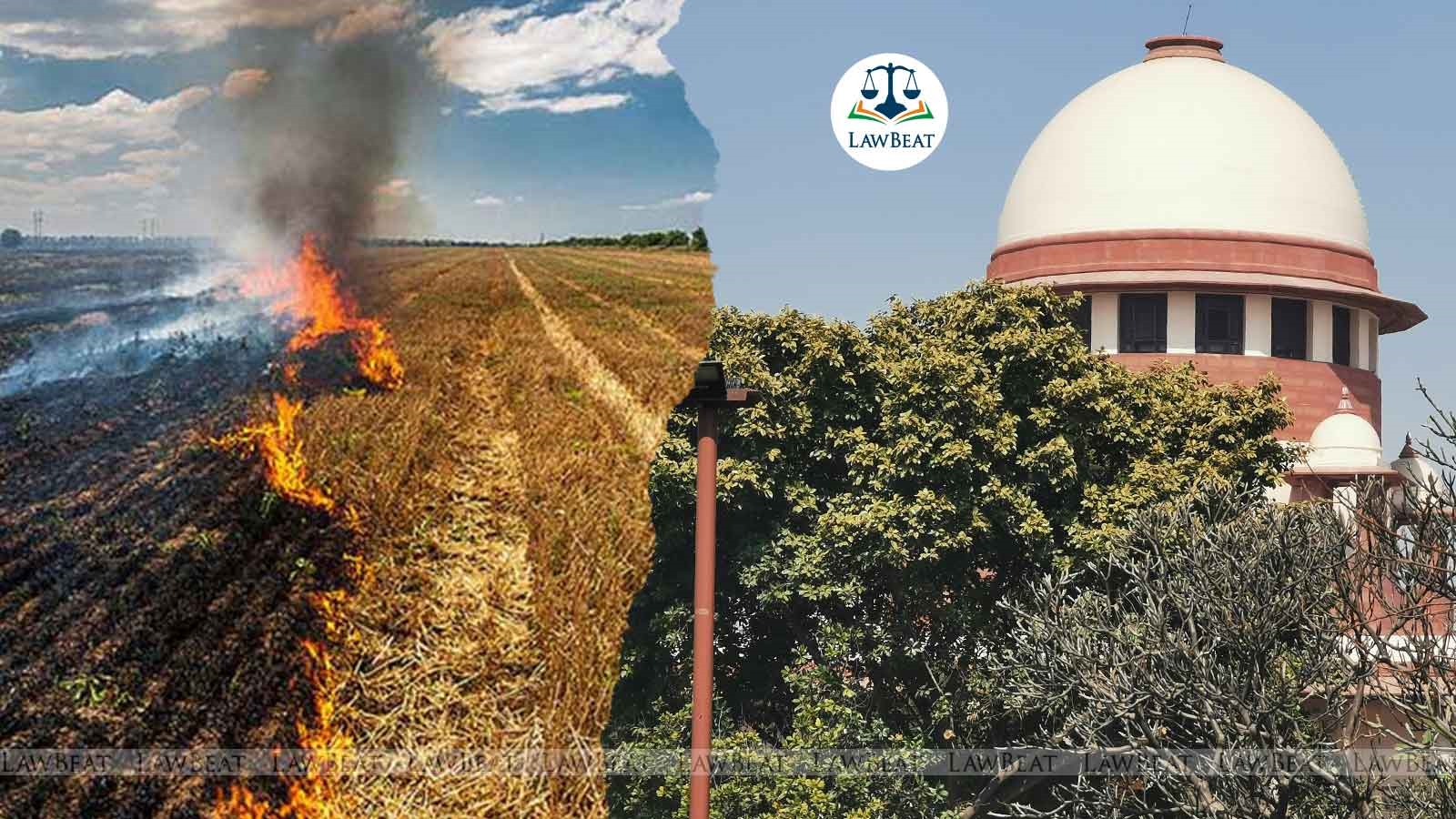Governments have to address questions of protecting rights of citizens to live in a pollution-free environment: Supreme Court

The court today directed the authorities to coordinate better while also emphasising that penal action must be taken against officials who fail to enforce the CAQM Act
Taking note of rampant stubble burning, the Supreme Court of India today upheld the right to a pollution-free environment while observing that 'stubble burning is not merely a violation of law but an infringement of the fundamental rights guaranteed under Article 21 of the Constitution.'
The bench comprising Justices Abhay S Oka, Ahsanuddin Amanullah and Augustine George Masih expressed deep concern over the Centre's failure to penalise stubble burning. The bench said, "It is not only a question of implementing the orders of the commission and taking action for breaches of law, the government has to address themselves the questions as to how they are going to protect the rights of citizens to live with dignity and in a pollution-free environment."
On Justice Abhay S Oka's asking what action has been taken by the Centre, the Additional Solicitor General (ASG), appearing for the Commission for Air Quality Management (CAQM), assured the bench that section 15 of the CAQM Act, which deals with penalty for stubble burning will become operational within 10 days.
ASG Aishwarya Bhatti further informed the court that show-cause notices have been issued to the secretary and additional secretary for the states of Punjab and Haryana respectively.
Turning to these states, the court noted that the penal provisions of the CAQM Act are not being consistently implemented by the said states.
Emphasising that penal action must be taken against officials who fail to enforce the Act, the court said, "Therefore it is high time that the government note that this litigation is not an adversarial litigation and this litigation is only to ensure that the laws related to the environment are strictly complied with so that constitutional rights for the citizens are upheld."
The court further directed the commission to reconsider the issue of environmental compensation under Section 15 of the CAQM Act and to establish proper rates for compensation.
While stressing the need for better coordination among authorities, the court pointed out that the monitoring committee, which is the most important committee under the Act, is not properly functioning because of the absence of members. Accordingly, the Union was directed to address the Punjab's proposal for the release of funds to provide tractors and diesel for farmers.
The court also upheld the contentions raised by Learned Amicus Curiae Aparajita Singh and said, "This court has time and again passed orders every year to deal with the issue of pollution and maintaining air quality in certain states and capitals."
During the last hearing, the Court had pulled up the Commission for Air Quality Management (CAQM) for not performing its task to control up to the court's directions issued earlier.
"Commission needs to be more active and must ensure that its efforts and directions actually translate into reducing the problem of pollution..", a bench of Justices AS Oka and AG Masih said.
Court has accordingly directed the Commission to file a status report indicating details of the sub-committee meetings and decisions issued thereunder. "It must ensure that the equipment to avoid stubble burning are actually used by the farmers. This apart from certain other methods suggested by Commission that must place on records details of meetings held and decisions taken therein.", court has further directed.
Top Court opined that though Commission has taken certain steps, it needs to be more active and must ensure that its efforts and directions actually translate into reducing the problem of pollution.
"Efforts needs to be taken to make sure that use of stubble burning alternative equipments are used at grassroots level. There are hardly directions issued under the Act and no action has been taken after finding that directions have been violated under Section 14...", the bench further observed today.
In November last year, Supreme Court had pulled up the governments of Punjab, Rajasthan, Haryana, and UP, asking them to immediately stop stubble burning.
In reference to the worsening of the condition in Delhi NCR, the Supreme Court had remarked that a huge number of taxis were found on Delhi roads, with only one passenger onboard.
Supreme Court had also refused to interfere with the blanket ban imposed by it on production and sale of firecrackers including green crackers in the Delhi NCR region. Court had further told the Delhi Police that filing cases against people who burn firecrackers may not help in curbing sale of firecrackers.
Case Title: MC Mehta vs. Union of India & Ors
